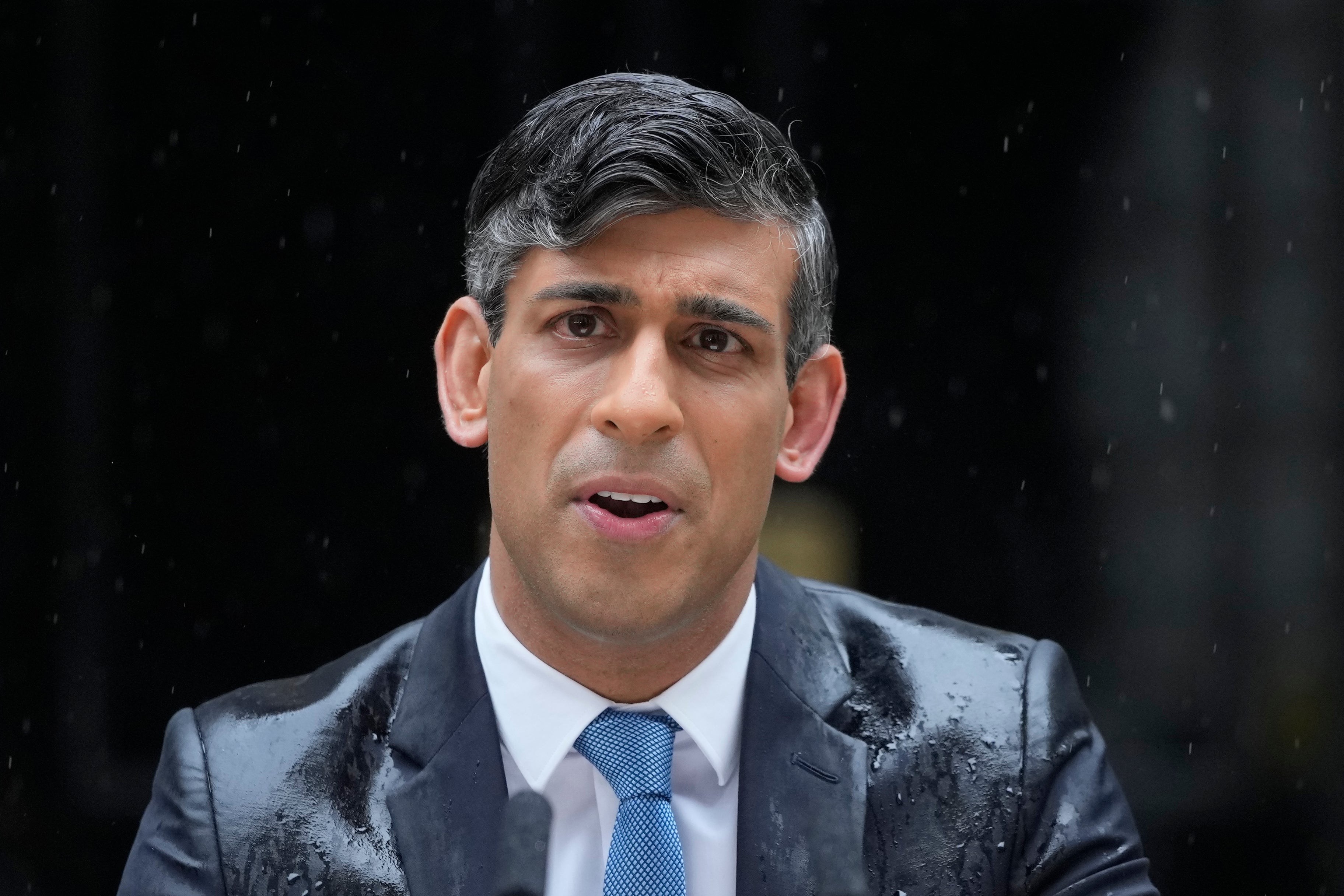A UK election has been called for the first time in five years. Here’s what you need to know
On July 4, the United Kingdom will hold its first election in five years in a country reeling from the cost-of-living crisis, the fallout from Israel-Hamas conflict and deep divisions over how to deal with migrants and asylum seekers crossing the English Channel from Europe on small inflatable boats

Your support helps us to tell the story
From reproductive rights to climate change to Big Tech, The Independent is on the ground when the story is developing. Whether it's investigating the financials of Elon Musk's pro-Trump PAC or producing our latest documentary, 'The A Word', which shines a light on the American women fighting for reproductive rights, we know how important it is to parse out the facts from the messaging.
At such a critical moment in US history, we need reporters on the ground. Your donation allows us to keep sending journalists to speak to both sides of the story.
The Independent is trusted by Americans across the entire political spectrum. And unlike many other quality news outlets, we choose not to lock Americans out of our reporting and analysis with paywalls. We believe quality journalism should be available to everyone, paid for by those who can afford it.
Your support makes all the difference.The United Kingdom’s first election in five years is shaping up as a battle for the country’s soul, with some saying it poses an existential threat to the governing Conservative Party, which has been in power since 2010.
The center-right Conservatives took power during the depths of the global financial crisis and have won two more elections since then. But those 14 years have been filled with challenges and controversies, making the Tories, as they are commonly known, easy targets for critics on the left and right.
Labour, which leans to the left, faces its own challenges in shaking off a reputation for irresponsible spending and proving that it has a plan to govern.
Both parties are being ripped apart by the conflict in the Middle East, with the Tories facing charges of Islamophobia and Labour struggling to distance itself from antisemitism that festered under former leader Jeremy Corbyn.
Here is a look at the upcoming election and the biggest issues at stake.
When is the election in the United Kingdom?
Prime Minister Rishi Sunak set July 4 as the date for the election, months ahead of when it was expected. He had until December to call an election that could have happened as late as Jan. 28, 2025.
The early announcement is known as a ‘snap election’.
The timing of the election is determined by the prime minister’s calculation of the date most advantageous to the ruling Conservatives. It had been expected in the fall, when a number of economic factors were expected to have improved their chances, the Institute for Government, a London-based think tank, had said.
But favorable economic news on Wednesday, with inflation down to 2.3 percent, changed the narrative.
How does voting work?
People throughout the United Kingdom will choose all 650 members of the House of Commons for a term of up to five years. The party that commands a majority in the Commons, either alone or in coalition, will form the next government and its leader will be prime minister.
That means the results will determine the political direction of the government, which has been led by the center-right Conservatives for the past 14 years. The center-left Labour Party is widely seen to be in the strongest position.
Key players: Who is running?
Rishi Sunak, a former Treasury chief who has been Prime Minister since October of 2022, is expected to lead his party into the election. His primary opponent will be Keir Starmer, a former director of public prosecutions in England and leader of the oposition, the Labour Party since April 2020.
But other parties, some of which have strong regional support, could be crucial to forming a coalition government if no one wins an overall majority.
The Scottish National Party, which campaigns for Scottish independence, the Liberal Democrats, and the Democratic Unionist Party, which seeks to maintain ties between Britain and Northern Ireland, are currently the three largest parties in Parliament after the Conservatives and Labour. Many observers suggest the new Reform Party, formed by Tory rebels, may siphon votes from the Conservatives.
What are the big issues at stake?
The economy
Britain has struggled with high inflation and slow economic growth, which have combined to make most people feel poorer. The Conservatives succeeded in meeting their goal of halving inflation, which peaked at 11.1 percent in October 2022, but the economy slipped into a technical recession in the last six months of 2023, raising questions about the government’s economic policies.
Immigration
Thousands of asylum seekers and economic migrants have crossed the English Channel in flimsy inflatable boats in recent years, raising concerns the government has lost control of Britain’s borders. The Conservatives’ signature policy for stopping the boats is a plan to deport some of these migrants to Rwanda. Critics say the plan violates international law, is inhumane, and will do nothing to stop people fleeing war, unrest and famine.
Healthcare
Britain’s National Health Service, which provides free health care to everyone, is plagued with long waiting lists for everything from dental care to cancer treatment. Newspapers are filled with stories about seriously ill patients forced to wait hours for an ambulance, then longer still for a hospital bed.
The environment
Sunak has backtracked on a series of environmental commitments, pushing back the deadline for ending the sale of gasoline- and diesel-powered passenger vehicles and authorizing new oil drilling in the North Sea. Critics say these are the wrong policies at a time the world is trying to combat climate change.